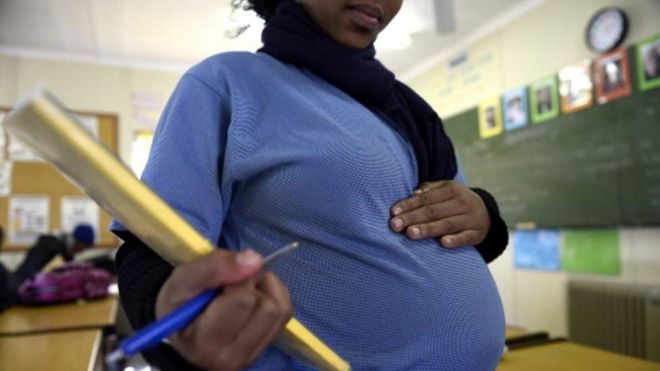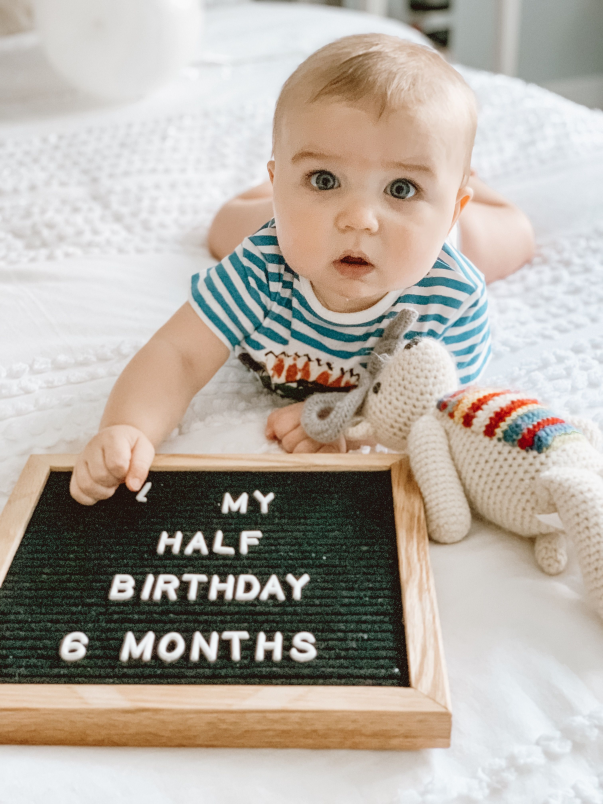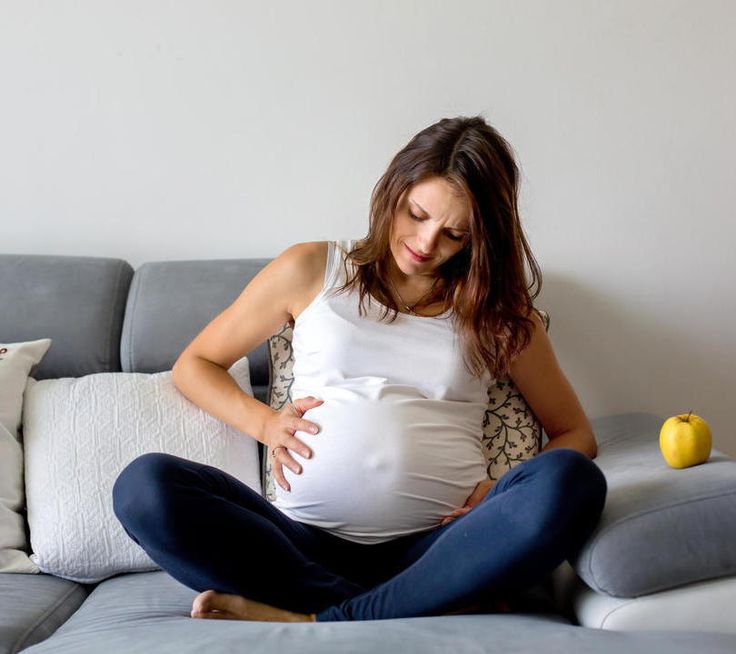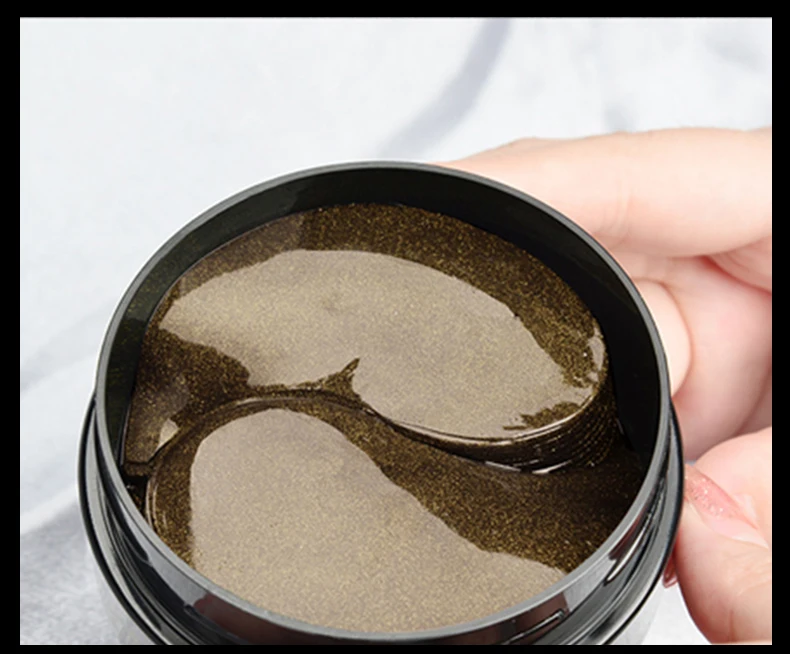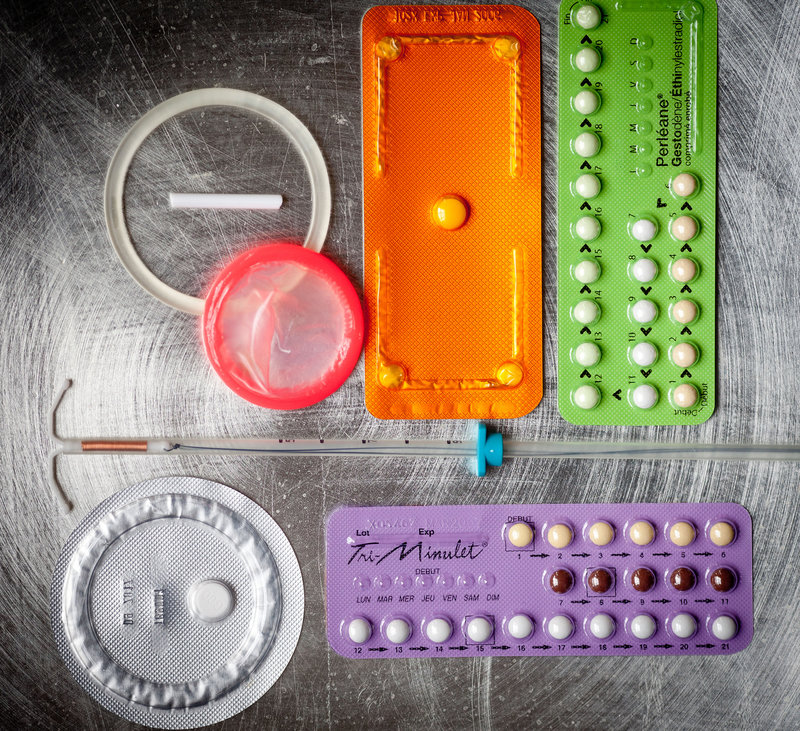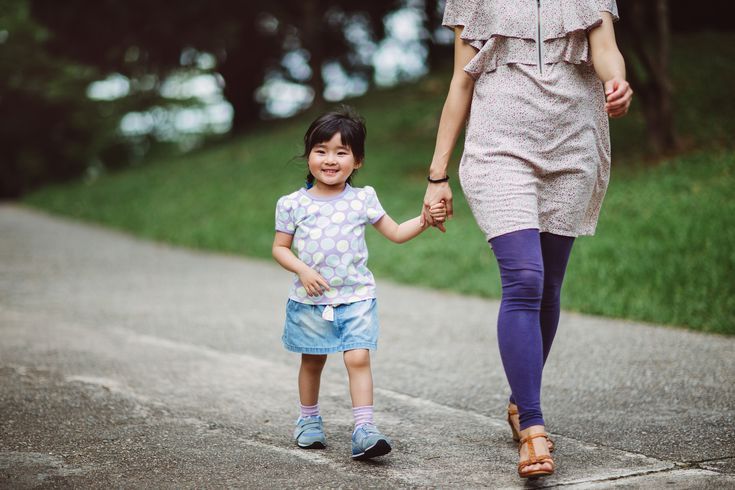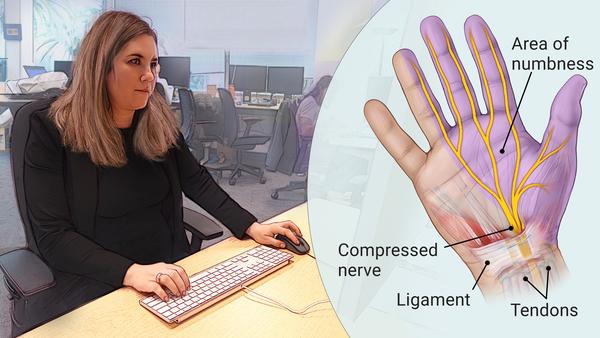Teenager giving birth in school
14-Yr-Old Gives Birth in School, Nobody Realised She Was Pregnant
Fourteen-year-old Maya (name changed) gave birth to a child in the bathroom of her school in Chamarajanagar district on 25 August. Bizarrely, the staff claim that they did not know she was pregnant until they heard the baby cry after the delivery.
In the past two months, no one asked her why she had stopped wearing the school uniform, and instead attended in a long skirt and blouse and a shawl.
Maya, a Soliga girl, was admitted in the Chamarajnagara Government hospital, several hours after she delivered the baby.
When she enrolled at the MM Hills Morarji Desai School for tribal children for Class 5 in June, she was seven months pregnant.
On 30 August, a tired and exhausted Maya was sleeping with the baby on a bed in the waiting room in the SNCU ward.
ADVERTISEMENT
She said the father of the baby, Shivu, is her relative and that they had been in love for a couple of years. She said that only her mother knew about her pregnancy.
I didn’t tell my father because he would have killed me. He often behaved violently. When my mother asked me to kill the child, I said I wanted to keep it. But my mother asked me to kill it once it was born and not bring it home.
Maya, 14-year-old girl
Maya remembers being carried by a teacher named Ankappa to the toilet when she went into labour. But none of the school staff was with her when she gave birth.
The school cook Kempamma says Maya had coffee and got dressed for class that morning.
“About half-an-hour before the delivery, I heard some screams, but I thought it must be just the kids crying or fighting. When I was about to start cooking, Shruthi (a teacher) came running to me and asked me to go to the room where the girls slept. They asked me to drop everything and go and assist Maya. But by the time I went there, the girl had given birth in the toilet. ”
”
ADVERTISEMENT
Students from the school where the teenage girl gave birth. (Photo: TNM)
ADVERTISEMENT
Kempamma says that when she went to the bathroom-cum-toilet, Maya had already given birth and that she cut the umbilical cord, and waited until the placenta came out. Someone brought some hot water and a cloth to clean up the girl and the child.
I waited there for some more time and kept asking her to feed the baby. But she refused and wasn’t lactating. The other cook got some ganji (porridge). We had to feed the child something so I gave it some diluted coffee concoction.
Kempamma, school cook
What she said next perhaps sums up why the girl was neglected. “I was not in a position to call the police and I was very scared if the girl’s family would beat me up.”
“Maya tried to strangle the child and herself while I was sitting there.I shouted out and stopped her a couple of times,” Kempamma alleges. Maya denies this.
ADVERTISEMENT
The warden Bhavya arrived only at noon but the delivery occurred around 7am. A car was arranged to take the girl to her village. It dropped Maya and Kempamma at the end of the motorable road. Then on, they had a 2km uphill climb.
I carried the baby and Maya walked with me. All the while she kept asking me to let her go alone with the child. But I told her to do only what her parents tell her, because if she did something I would be responsible for it.
Kempamma, School Cook
Maya said that she did not want to go home and kept telling Kempamma that she wanted to be left to survive on her own.
At the village, Kempamma claims that Maya’s mother and grandmother started arguing with her for not letting the girl kill the child.
“I was scared that they would also kill the child.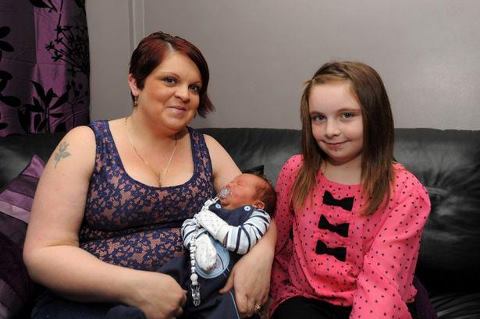 I stayed there until 8pm, after which the police and ambulance arrived.” It was that night that she was taken to the Chamarajanagar government hospital.
I stayed there until 8pm, after which the police and ambulance arrived.” It was that night that she was taken to the Chamarajanagar government hospital.
ADVERTISEMENT
The toilet where the minor had her baby. (Photo: TNM)
ADVERTISEMENT
The shock over whole episode dissipates little when you actually go to the school Maya studies in, because her circumstances are brought into sharp relief against the overwhelming atmosphere of neglect — by omission as well as commission.
Students in the school say that they saw Bhavya, the warden, for the first time on Saturday afternoon, the day Maya delivered the baby. Bhavya, however, maintained that she had not stayed over at the school because she has a child who lives at her home in Kollegal, a town about 10km downhill.
MM Hills police inspector, Venktesh said that Bhavya was also warden-in-charge in eight other tribal schools in the taluk.
Such a situation is hardly uncommon, says Shailendra, secretary of Karnataka Forest Dwellers Development Association.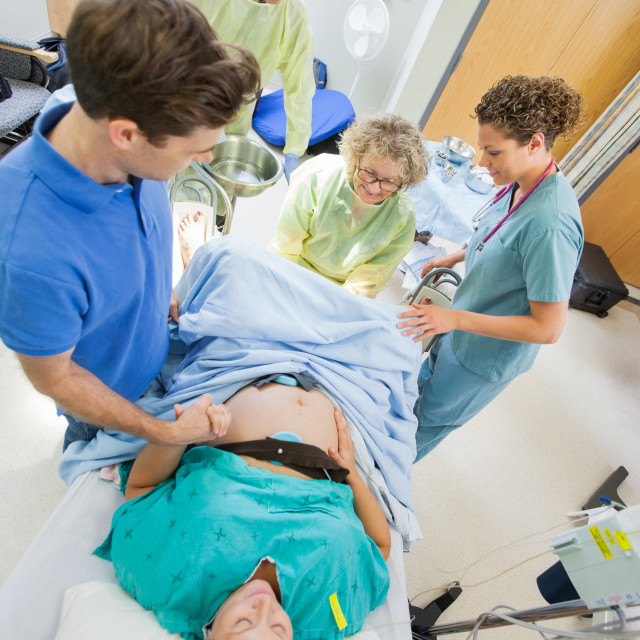 “I have visited many schools in Mysuru, Chamarajnagar and Madikeri districts. In many schools, wardens don’t stay over... They only draw their salaries. Of all the districts, Chamarajnagar is one of the worst,” he said.
“I have visited many schools in Mysuru, Chamarajnagar and Madikeri districts. In many schools, wardens don’t stay over... They only draw their salaries. Of all the districts, Chamarajnagar is one of the worst,” he said.
ADVERTISEMENT
MM Hills Morarji Desai School for tribal children. (Photo: TNM)
ADVERTISEMENT
Three quarters of the seats are reserved for the largest tribe in the area, the remaining seats are to be filled up by local SC or OBC children. All the children in Maya’s school — 42 boys and 58 girls — belong to the Soliga community.
According to the rules, each school should have eight staff in residence – four teachers, two caretakers, a warden and two cooks. Maya’s school however, has just half this number of permanent staff.
Children must be admitted in a class corresponding to their age. If children cannot cope with their classmates, they are to be provided with a bridge course and then admitted to school. Maya was one such student.
Maya was one such student.
ADVERTISEMENT
These schools come under the Social Welfare Department. The focus is on overall development, but they aren’t staffed enough with people having expertise in education. Many under-trained staff are being appointed as teachers and wardens in these schools.
Ashok Kumar, Member, Samagra Grameena Ashrama Samiti (SGAS)
SGAS is an organisation working towards development of tribal schools in the state.
According to the rules, school children are also supposed to have regular medical check-ups. Bhavya said that no doctor had visited the school in nine months. While other staff claimed that a nurse had visited, no medical records have been maintained for any of the students.
A case of rape has been registered against Shivu (20) under POCSO. He has been sent to judicial custody, and the Women and Child Welfare Department have taken the baby in their custody.
Around the time Maya gave birth to the baby in school, the media reported that the state government planned to erect a statue of Male Madeshwara atop the MM Hills at a cost of Rs 21 crore. Perhaps an equal amount of attention should be paid to those who live in those hills.
(Published in a special arrangement with The News Minute.)
(At The Quint, we are answerable only to our audience. Play an active role in shaping our journalism by becoming a member. Because the truth is worth it.)
Read and Breaking News at the Quint, browse for more from news and india
Topics: Pregnancy KARNATAKA School
ADVERTISEMENT
When Your Teen Is Having a Baby (for Parents)
If your daughter is pregnant and planning to have the baby, many changes await your family. And though it's certainly not what most parents expect, it happens every day: nearly 250,000 teenage girls in the United States give birth every year.
If your teen is about to become a mother (or your son has fathered a child), it can be overwhelming for all of you. How can you support your child through the challenges that lie ahead?
What You May Be Feeling
If you have just learned that your teen is having a baby, you're probably experiencing a wide range of emotions, from shock and disappointment to grief and worry about the future.
Some parents feel a sense of guilt, thinking that if only they'd done more to protect their child this wouldn't have happened. And although some parents are embarrassed by their teen's pregnancy and worried about how family, friends, and neighbors will react, others are happy about the news of a soon-to-be grandchild — especially if the teen is older and in a mature relationship.
Whatever feelings you're experiencing, this is likely to be a difficult time for your family. The important thing is that your teen needs you now more than ever. Being able to communicate with each other — especially when emotions are running high — is essential.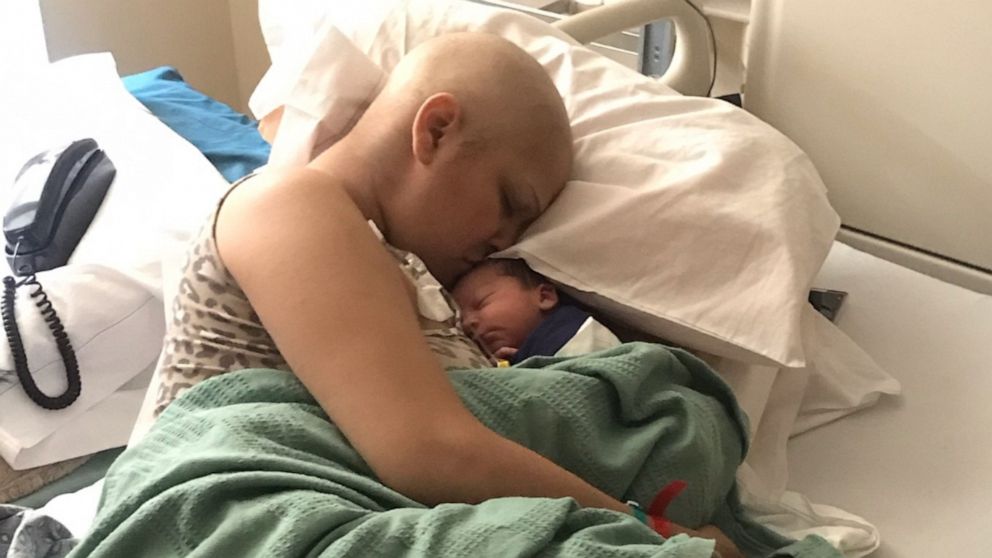 Teens who carry a baby to term have special health concerns, and your daughter will have a healthier pregnancy — emotionally and physically — if she knows she doesn't have to go it alone.
Teens who carry a baby to term have special health concerns, and your daughter will have a healthier pregnancy — emotionally and physically — if she knows she doesn't have to go it alone.
So what can you do as the parent of a teen having a baby? Recognize your feelings and work through them so that you can accept and support her. Does that mean you don't have the right to feel disappointed and even angry? No. Such reactions are common. You might have a strong flood of emotions to deal with, especially at first. But the reality of the upcoming baby means that you'll have to get beyond your initial feelings for the sake of your daughter and her child.
If you need help coping with your feelings about the situation, talk to someone you trust or seek professional counseling. A neutral third party can be a great resource at a time like this.
Page 1
What Your Teen May Be Feeling
Just a short time ago your teen's biggest concerns might have been hanging out with her friends and wondering what clothes to wear. Now she's dealing with morning sickness and scheduling prenatal visits. Her world has been turned upside down.
Now she's dealing with morning sickness and scheduling prenatal visits. Her world has been turned upside down.
Most unmarried teens don't plan on becoming pregnant, and they're often terrified when it happens. Many, particularly younger teens, keep the news of their pregnancies secret because they fear the anger and disappointment of their parents. Some might even deny to themselves that they are pregnant — which makes it even more important for parents to step in and find medical care for their teen as early in the pregnancy as possible. Younger teens' pregnancies, in particular, are considered high risk because their bodies haven't finished growing and are not yet fully mature.
Teen boys who are going to become fathers also need the involvement of their parents. Although some boys may welcome the chance to be involved with their children, others feel frightened and guilty and may need to be encouraged to face their responsibilities (the father is legally responsible for child support in every state).
That doesn't mean, however, that you should pressure your teen son or daughter into an unwanted marriage. Offer advice, but remember that forcing your opinions on your teen or using threats is likely to backfire in the long run. There's no "one size fits all" solution here. Open communication between you and your teen will help as you consider the future.
Page 2
Special Concerns of Pregnant Teens
Even though most teen girls are biologically able to produce healthy babies, whether they do often depends on whether they receive adequate medical care — especially in those critical early months of pregnancy.
Teens who receive proper medical care and take care of themselves are more likely to have healthy babies. Those who don't receive medical care are at greater risk for:
- fetal death
- high blood pressure
- anemia
- labor and delivery complications (such as premature labor and stillbirth)
- low birth-weight infant
The earlier your teen gets prenatal care, the better her chances for a healthy pregnancy, so bring her to the doctor as soon as possible after finding out she's pregnant. If you need help finding medical care, check with social service groups in the community or at your child's school.
If you need help finding medical care, check with social service groups in the community or at your child's school.
Your teen's health care provider can tell her what to expect during her pregnancy, how to take care of herself and her growing baby, and how to prepare for life as a parent.
Some topics that will be addressed include:
Medical Care
At her first prenatal visit, your teen will probably be given a full physical exam, including blood and urine tests. She'll be screened for sexually transmitted diseases (STDs) and for exposure to certain diseases, such as measles, mumps, and rubella.
Her health care provider also will discuss:
- how often prenatal visits should be scheduled
- what she may be feeling physically and emotionally
- what changes she can expect in her body
- how to deal with some of the uncomfortable side effects of pregnancy, like nausea and vomiting
Knowing what to expect can help alleviate some of the fears your daughter may have about being pregnant.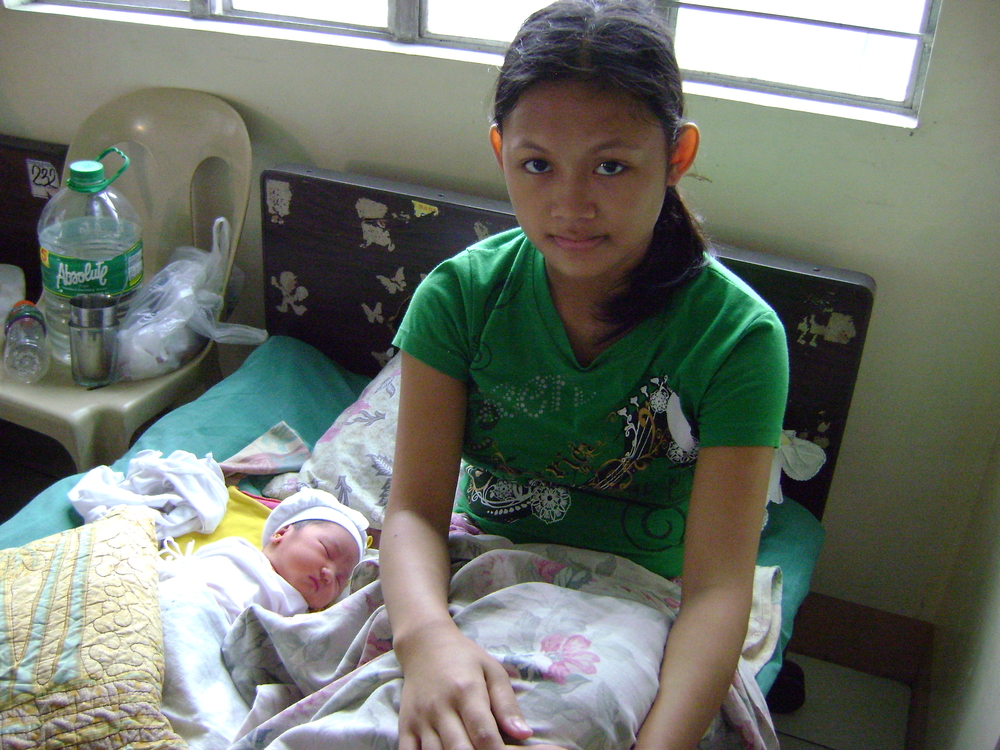 Her health care provider will probably prescribe a daily prenatal vitamin to make sure she gets enough folic acid, iron, and calcium. Folic acid is especially important during the early weeks of pregnancy, when it plays a role in the healthy development of the neural tube (the structure that develops into the brain and spinal cord).
Her health care provider will probably prescribe a daily prenatal vitamin to make sure she gets enough folic acid, iron, and calcium. Folic acid is especially important during the early weeks of pregnancy, when it plays a role in the healthy development of the neural tube (the structure that develops into the brain and spinal cord).
Page 3
Lifestyle Changes
Your teen's health care provider will talk about the lifestyle changes she'll have to make for the health of her baby, including:
- not smoking (smoking while pregnant increases the risk of miscarriage, stillbirth, low birth weight, and sudden infant death syndrome)
- not drinking (alcohol causes mental and physical birth defects)
- not using drugs (drugs are associated with pregnancy complications and fetal death)
- not taking in more than 200 mg per day of caffeine (the amount in a 12-ounce cup of coffee)
- eating right
- getting enough rest
- avoiding risky sexual behaviors (such as having unsafe sex)
If your daughter smokes or uses alcohol or other drugs, her health care provider can offer ways to help her quit.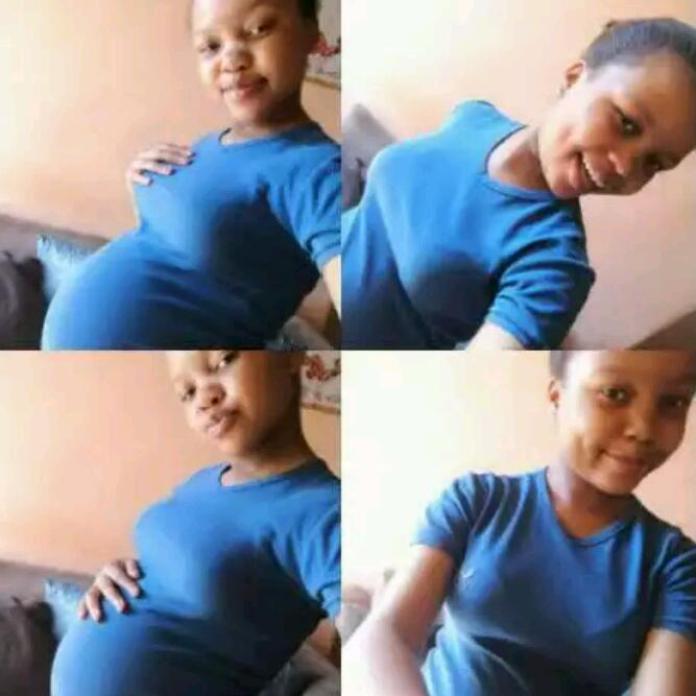
Nutrition
Fast food, soft drinks, sweets — teen diets are notoriously unbalanced. Eating well greatly increases your teen's chances of having a healthy baby, so encourage her to maintain a well-balanced diet that includes plenty of fruits, vegetables, and whole-grain breads (use the U.S. Department of Agriculture's MyPlate as a guide).
Important nutrients include:
- proteins (lean meat, fish, poultry, egg whites, beans, peanut butter, tofu)
- calcium (milk and other dairy products)
- iron (lean red meats, spinach, iron-fortified cereals)
- folic acid (green leafy vegetables, beans, peas, fortified cereals)
Drinking plenty of water is essential, too.
Pregnancy is not the time for your daughter to go on a diet. When pregnant, some teens might be tempted to counter normal pregnancy weight gain by cutting calories or exercising excessively — both of which can seriously harm their babies.
If you suspect that your teen has an unhealthy preoccupation with her weight, talk to her health care provider.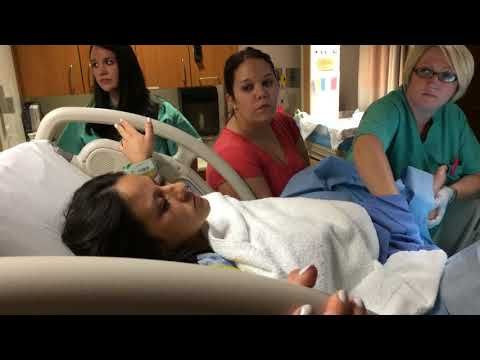
Page 4
Exercise
If your teen was physically fit before getting pregnant and is not experiencing any pregnancy complications, her health care provider will probably encourage her to continue exercising.
Most women benefit from getting some exercise during pregnancy, although they might have to modify their activity. Low-impact exercises, such as walking and swimming, are best. Have your daughter discuss her exercise plans with her health care provider early on.
Stress
Most teens enter parenthood unprepared for the stress a new baby brings, and many experience frustration, resentment, and even anger toward their newborns — which may explain why teen parents are at higher risk for abusing and neglecting their babies.
You may want to talk with your teen's doctor to discuss ways you can help her manage her stress levels so that she can better cope with changes in her life. She also may want to spend some time with other parents of newborns to get a better sense of what caring for a baby involves.
Prenatal Classes
Your daughter's health care provider will probably recommend that she take classes on pregnancy, giving birth, and parenting. These classes (some of which are held just for teens) can help prepare her for the practical side of parenthood by teaching skills such as feeding, diapering, child safety, and other basic baby care techniques.
Page 5
Preparing for New Responsibilities
Many practical issues must be considered. Will your teen keep the baby or consider adoption? If she keeps it, will she raise the baby herself? Will she continue to go to school? Will the father be involved in the baby's life? Who will be financially responsible for the baby?
The answers to these questions often depend on the support your daughter receives. Some teens raise their child alone, some have the involvement of the baby's father, and some rely on their families for support.
As a parent, you need to think about your own level of involvement and commitment and discuss it with your teen. How much support — financial and otherwise — are you willing and able to offer? Will your daughter and her child live with you? Will you help pay for food, clothing, doctor visits, and necessary items like a car seat and stroller? Can you assist with childcare while your she's at school and/or work? A social worker or counselor can help you and your teen sort through some of these issues.
How much support — financial and otherwise — are you willing and able to offer? Will your daughter and her child live with you? Will you help pay for food, clothing, doctor visits, and necessary items like a car seat and stroller? Can you assist with childcare while your she's at school and/or work? A social worker or counselor can help you and your teen sort through some of these issues.
If at all possible, it's best for girls who are pregnant to finish school so they can get better jobs and create a better life for themselves and their babies. This is no easy task — 60% to 70% of all pregnant teens drop out of school. And going back after quitting is especially hard, so try to offer your daughter the support she needs to stay in school — both she and the baby will benefit. Check for school and community programs that offer special services for teen mothers, such as childcare, transportation, or tutoring.
Help your teen understand that as rewarding as having a child is, it isn't always fun — caring for a baby is a huge responsibility and a lifelong commitment.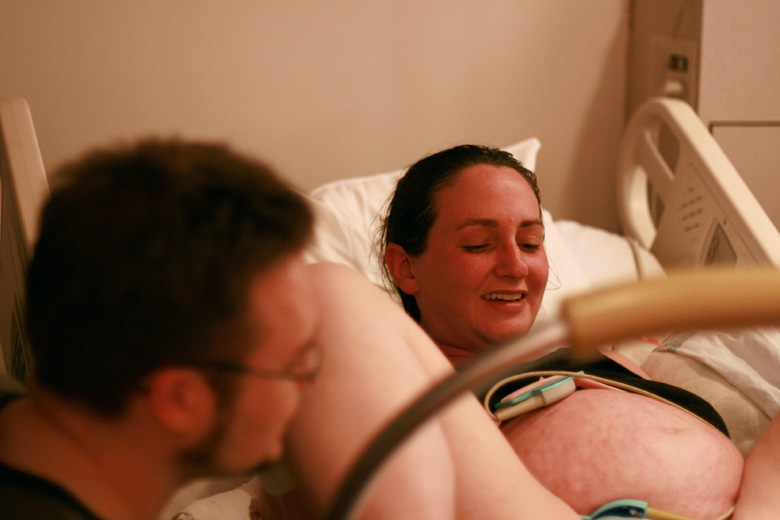 Prepare her for the reality that she won't have as much time for the things she used to do — that her life is about change and the baby will take priority.
Prepare her for the reality that she won't have as much time for the things she used to do — that her life is about change and the baby will take priority.
As a parent, you can have a great impact on your teen's life and on her baby's. You may still wish that she had made different choices. But by supporting your daughter, making sure she gets good prenatal care, and listening as she shares her fears and anxieties, both of you may find that you're better parents in the long run.
Reviewed by: Steven Dowshen, MD
Date reviewed: September 2016
Teenage pregnancies
Magnitude of the problem
Approximately 21 million pregnancies occur each year among girls aged 15-19 in developing countries, and approximately 12 million of them end in childbirth 1 . At least 777,000 births in developing countries registered among adolescent girls under the age of 15 2 .
An estimated 11.6% decline in adolescent birth rates worldwide over the past 20 years 5 . At the same time, there are large differences in this indicator between regions. For example, the adolescent birth rate is 7.1 in the countries of East Asia, and in the countries of Central Africa it reaches 129.5 5 .
There are also huge differences within regions. In 2018, the total adolescent birth rate in Southeast Asia was 33 6 . At the same time, the value of this indicator fluctuated from 0.3 in the Democratic People's Republic of Korea Republic to 83 in Bangladesh 5 .
Huge differences exist even within countries. For example, in Ethiopia, the total fertility rate ranges from 1.8 in Addis Ababa to 7.2 in the Somali region, with the proportion of women aged 15-19 years having a first birth ranging from 3% in Addis Ababa to 23% in Afar district 7 .
Although the adolescent birth rate is estimated to be declining worldwide, the actual number of adolescent births is not declining due to a large – and in some parts of the world increasing – the number of young women aged 15-19years 8 . The largest number of births occur in East Asia (95,153) and West Africa (70,423) 9
Overview
Teenage pregnancy is a global problem affecting high, middle and low income countries. Globally, however, teenage pregnancy is more likely to occur in marginalized populations and is often due to poverty, lack of education and employment opportunities 10 .
Several factors contribute to the occurrence of teenage pregnancies and births. In many societies, girls are forced to marry early and have children 11,12,13 . In the least developed countries, at least 39% of girls go married before the age of 18, and 12% before the age of 15 14 . In many places, girls choose to become pregnant due to limited educational or employment opportunities. In such societies, motherhood importance is attached to which marriage or union and childbearing may be the best limited option available 12 .
Adolescents who would like to avoid pregnancy may be unable to do so due to lack of knowledge and misconceptions about where they can get contraceptives and how to use them15.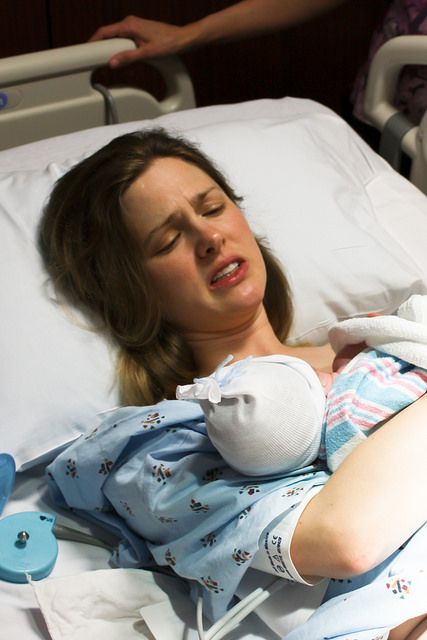 Teenagers face barriers in access to contraceptives, including restrictive laws and policies regarding the provision of contraceptives based on age or marital status, biased attitudes by healthcare professionals and/or reluctance to recognize the sexual health needs of adolescents, and due to adolescents' own inability to access contraceptives as a result of lack of knowledge, lack of transportation and financial constraints. In addition, teenagers may not have the capacity or discretion to ensure the correct and consistent use of contraceptive methods. There are at least 10 million unwanted pregnancies among adolescent girls every year in developing countries aged 15-19years 1 .
Teenagers face barriers in access to contraceptives, including restrictive laws and policies regarding the provision of contraceptives based on age or marital status, biased attitudes by healthcare professionals and/or reluctance to recognize the sexual health needs of adolescents, and due to adolescents' own inability to access contraceptives as a result of lack of knowledge, lack of transportation and financial constraints. In addition, teenagers may not have the capacity or discretion to ensure the correct and consistent use of contraceptive methods. There are at least 10 million unwanted pregnancies among adolescent girls every year in developing countries aged 15-19years 1 .
Another cause of unwanted pregnancies is sexual violence, which is widespread with over a third of girls in some countries reporting that their first sexual experience was coerced 16 .
Health implications
Early teenage pregnancy has serious health implications for teenage mothers and their children. Complications of pregnancy and childbirth are the leading cause of death among girls aged 15-19years worldwide, with low- and middle-income countries accounting for 99% of the world's maternal deaths among women aged 15-49 3 . Adolescent mothers (aged 10-19 years) are at higher risk of eclampsia, postpartum endometritis and systemic infections than women aged 20-24 years 4 . In addition, adolescent girls aged 15-19 experience approximately 3.9 million unsafe abortions each year, contributing to maternal mortality, morbidity and long-term ill health 1 .
Complications of pregnancy and childbirth are the leading cause of death among girls aged 15-19years worldwide, with low- and middle-income countries accounting for 99% of the world's maternal deaths among women aged 15-49 3 . Adolescent mothers (aged 10-19 years) are at higher risk of eclampsia, postpartum endometritis and systemic infections than women aged 20-24 years 4 . In addition, adolescent girls aged 15-19 experience approximately 3.9 million unsafe abortions each year, contributing to maternal mortality, morbidity and long-term ill health 1 .
Childbirth at an early age increases the risk for both mothers and their newborns. Children born before age 20 are at higher risk of low birth weight, prematurity and severe neonatal illness 4 . In some countries, frequent pregnancy at a young age is of great concern, as it creates additional health risks for both mother and child 17 .
Socio-economic impact
Social consequences for unmarried pregnant adolescents may include stigmatization, social rejection or violence from partners, parents and peers. Girls who become pregnant before the age of 18 are more likely to experience marital or partner violence 16 . Pregnancy and childbirth during adolescence often causes girls to drop out of school. Although efforts are being made in a number of countries to allow them to return to work after the birth of a child, this may seriously limit their future educational and employment opportunities 19 .
Girls who become pregnant before the age of 18 are more likely to experience marital or partner violence 16 . Pregnancy and childbirth during adolescence often causes girls to drop out of school. Although efforts are being made in a number of countries to allow them to return to work after the birth of a child, this may seriously limit their future educational and employment opportunities 19 .
WHO activities
In the early stages of achieving the Millennium Development Goals, prevention of teenage pregnancy and its associated mortality and morbidity, as well as prevention of HIV infection and HIV-related mortality among adolescents and young people, was not given sufficient attention due to presence of competing priorities 20 . During this period, WHO collaborated with partners to raise awareness of adolescent issues, expand the body of evidence and the epidemiological basis for action, including the development of WHO guidance on the prevention of early pregnancy and adverse outcomes in adolescents in developing countries 21 , developing and testing program support tools, capacity building and pilot initiatives in a small but growing number of countries that recognize the need to address adolescent health concerns. As the world moves towards achieving the Sustainable Development Goals, adolescents are placed at the center of the global health and development agenda 21 .
As the world moves towards achieving the Sustainable Development Goals, adolescents are placed at the center of the global health and development agenda 21 .
While WHO continues its advocacy, evidence-gathering, tool development and capacity-building efforts, the focus is now on scaling up activities at the country level. WHO is working closely with partners within and outside the United Nations system to contribute to efforts around the world to prevent children from becoming wives and mothers. WHO's work is aimed at expanding the evidence base for action and supporting the use of evidence in well-designed and effectively implemented programs at the national and subnational levels. For example, WHO is collaborating closely with UNICEF, UNFPA and UN Women on a global program to accelerate action against child marriage 22 . WHO is also collaborating with the Family Planning 2020 global partnership, which aims to ensure that 120 million additional women and girls have access to contraception by 2020.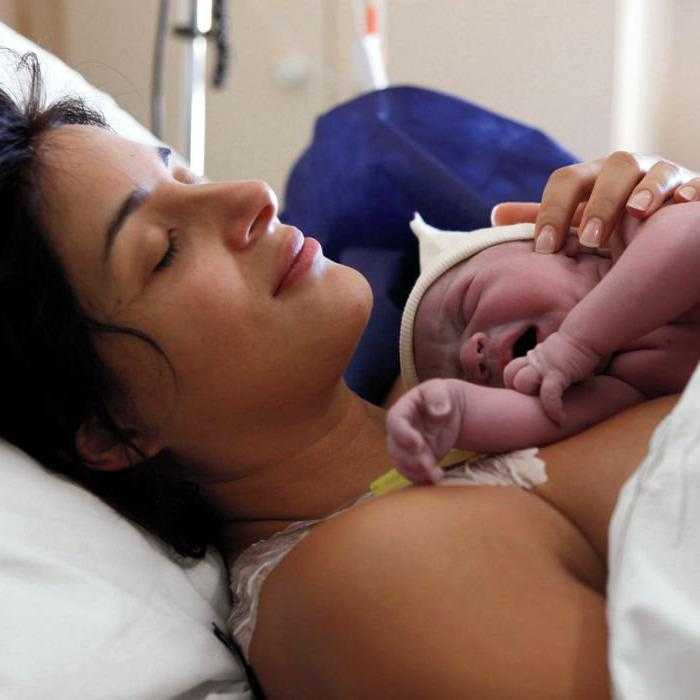
Nongovernmental organizations play a leading role in preventing teenage pregnancy in many countries carrying out bold and innovative projects. The number of successful national programs led by governments, for example in Chile, Ethiopia and the United Kingdom, is currently small but growing 23 . These countries show what can be achieved with sound scientific knowledge combined with strong leadership, management and perseverance. They set an example and inspire other countries to urgently achieve realistic goals and take necessary actions.
Bibliography
(1) Darroch J, Woog V, Bankole A, Ashford LS. Adding it up: Costs and benefits of meeting the contraceptive needs of adolescents. New York: Guttmacher Institute; 2016.
(2) UNFPA. Girlhood, not motherhood: Preventing adolescent pregnancy. New York: UNFPA; 2015.
(3) Neal S, Matthews Z, Frost M, et al. Childbearing in adolescents aged 12–15 years in low resource countries: a neglected issue. New estimates from demographic and household surveys in 42 countries. Acta Obstet Gynecol Scand 2012;91: 1114–18. Every Woman Every Child. The Global Strategy for Women`s, Children`s and Adolescents` Health (2016-2030). Geneva: Every Woman Every Child, 2015.
New estimates from demographic and household surveys in 42 countries. Acta Obstet Gynecol Scand 2012;91: 1114–18. Every Woman Every Child. The Global Strategy for Women`s, Children`s and Adolescents` Health (2016-2030). Geneva: Every Woman Every Child, 2015.
(4) WHO. Global health estimates 2015: deaths by cause, age, sex, by country and by region, 2000–2015. Geneva: WHO; 2016.
(5) Ganchimeg T, et al. Pregnancy and childbirth outcomes among adolescent mothers: a World Health Organization multicountry study. bjog. 2014;121(S Suppl 1):40-8.
(6) UN DESA, Population Division. World Population Prospects: The 2017 Revision, DVD Edition. New York: UN DESA; 2017 UNDESA, Population Division. World Population Prospects, the 2015 Revision (DVD edition). New York: UNDESA, Population Division, 2015.
(7) UNFPA. Adolescent pregnancy: A review of the evidence. New York: UNFPA, 2013.
(8) UN DESA, Statistics Division. SDG Indicators: Global Database. New York: UN DESA: 2017.
SDG Indicators: Global Database. New York: UN DESA: 2017.
(9) Every Woman Every Child. The Global Strategy for Women`s, Children`s and Adolescents` Health (2016-2030). Geneva: Every Woman Every Child; 2015.
(10) UNICEF. Ending child marriage: Progress and prospects. New York: UNICEF, 2013
(11) WHO. Global and regional estimates on violence against women: Prevalence and health effects of intimate partner violence and non-partner sexual violence. Geneva: WHO; 2013.
(12) WHO, UNICEF, UNFPA, World Bank Group and the United Nations Population Division. Trends in maternal mortality: 1990 to 2015: Estimates by WHO, UNICEF, UNFPA, World Bank Group and the United Nations Population Division. Geneva: WHO; 2015. Filippi V, Chou D, Ronsmans C, et al. Levels and Causes of Maternal Mortality and Morbidity. In: Black RE, Laxminarayan R, Temmerman M, et al., editors. Reproductive, Maternal, Newborn, and Child Health: Disease Control Priorities, Third Edition (Volume 2). Washington (DC): The International Bank for Reconstruction and Development / The World Bank; 2016 Apr 5. Chapter 3.
Washington (DC): The International Bank for Reconstruction and Development / The World Bank; 2016 Apr 5. Chapter 3.
(13) Kozuki N, Lee A, Silveira M, et al. The associations of birth intervals with small-for-gestational-age, preterm, and neonatal and infant mortality: A meta-analysis. BMC Public Health 2013;13(Suppl. 3):S3.
(14) World Bank. Economic impacts of child marriage: Global synthesis report. Washington, DC: World Bank; 2017.
(15) WHO. Preventing early pregnancy and poor reproductive outcomes among adolescents in developing countries. Geneva: WHO; 2011.
(16) Raj A, Boehmer U. Girl child marriage and its association with national rates of HIV, maternal health, and infant mortality across 97 countries. Violence Against Women 2013;19(4).
(17) WHO. Making health services adolescent friendly: Developing national quality standards for adolescent friendly health services. Geneva: WHO; 2012.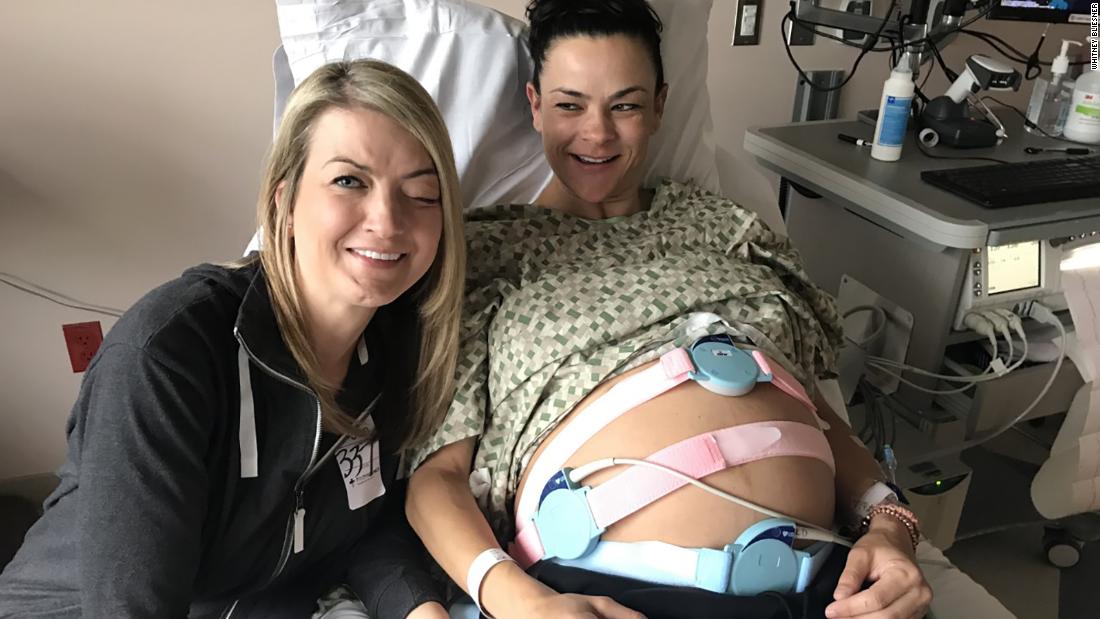
(18) WHO. Global Accelerated Action for the Health of Adolescents (AA-HA!): Guidance to support country implementation. Geneva: WHO; 2017.
(19) WHO. Global standards for quality health care services for adolescents. Geneva: WHO; 2015.
(20) WHO. Core competencies in adolescent health and development for primary care providers: including a tool to assess the adolescent health and development component in pre-service education of health-care providers. Geneva: WHO; 2015.
(21) UNESCO. International Technical Guidance on Sexuality Education: An evidence-informed approach for schools, teachers and health educators. Paris: UNESCO; 2009.
(22) UNESCO. Early and Unintended Pregnancy & the Education Sector: Evidence Review and Recommendations. Paris: UNESCO; 2017.
(23) United Nations General Assembly. Resolution adopted by the General Assembly on 25 September 2015: Transforming our world: the 2030 Agenda for Sustainable Development.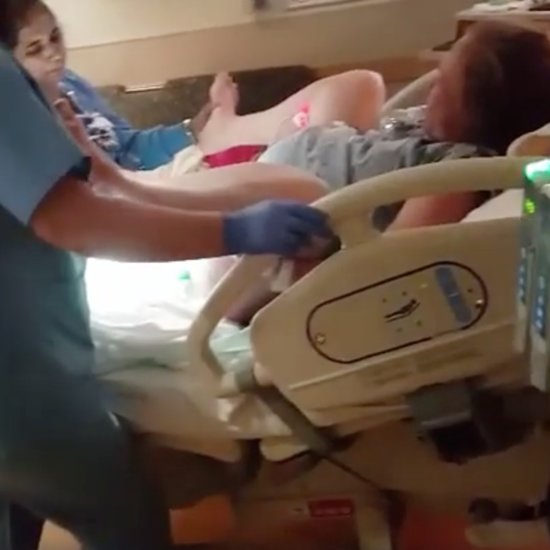 New York: United Nations; 2015.
New York: United Nations; 2015.
Flew at 12, gave birth at 13: what difficulties does the most popular underage blogger mom face
Komsomolskaya Pravda
SocietySociety: FAMILY AFFAIRS
Oleg GALIMOV
November 22, 2019 10:43
Polina Fetisova’s Youtube channel from Sredneuralsk has over 100 thousand subscribers, her videos are being watched by more than 100 thousand people.
Polina told about the difficulties she faced after childbirth. Photo: provided by the heroine of publication
“I was an ordinary child: I went to school, made friends with girls ... And then I gave birth” - this is how the blog on Polina Fetisova's You-Tube channel begins. The schoolgirl gave birth at the age of 13! Now she talks about the difficulties that a minor single mother has to face. And her touching videos on YouTube are gaining two million views.
HE FIRST DECESSED IN LOVE
Polina met the future father of her child spontaneously. On VKontakte, from a page without photos, she received a mysterious message: “I often see you at school ...” The boy kept his name a secret. What intrigued Polina. For several days, the girl walked around the school, trying to find a fan with her eyes. But in vain. One day, Polina got a call from her best friend. Like, I met cool guys, let's go for a walk ... Alexei (name changed - Approx. Ed.) Was among the girls' new friends.
On VKontakte, from a page without photos, she received a mysterious message: “I often see you at school ...” The boy kept his name a secret. What intrigued Polina. For several days, the girl walked around the school, trying to find a fan with her eyes. But in vain. One day, Polina got a call from her best friend. Like, I met cool guys, let's go for a walk ... Alexei (name changed - Approx. Ed.) Was among the girls' new friends.
- He was the first to confess his sympathy to me. He began to look after, called for a walk, wrote beautiful SMS, - slightly blushing, says Polina. - Lesha was in the fifth grade, and I was in the sixth. But he was a year older than me because he went to school late. We started dating. A month later, he began to hint at sex ... At first, I pulled him away. She asked me to remove my hands and not to touch me below the waist.
But after six months of relationship, the boy still achieved his goal. This happened at Alexei's house, when the teenagers were left alone.
- He closed the door of the room and began to beg, - Polina continues. - I was categorically against it, I was nearing an examination by a gynecologist. And yet he got his way. I don't know if my classmates were having sex at the time, but there were a couple of high school girls at school who gave birth before finishing 11th grade.
I PUSHED IN THE STOMACH IN THE DAY, I WOULD SOBBING AT NIGHT
- Time passed, I started to gain weight. I thought genes - in our family all the women are full, - Polina makes a helpless gesture. - And then the stomach became large and moved. So I realized that it's not about being overweight. I read on the Internet that if the child moves, it means that it is already the fifth month, the fetus is already large.
The frightened girl first wrote to her beloved. But Alexei's reaction took her by surprise:
- What child?! Yes you [a girl of easy virtue]! - the teenager answered sharply and immediately blocked his girlfriend in all social networks.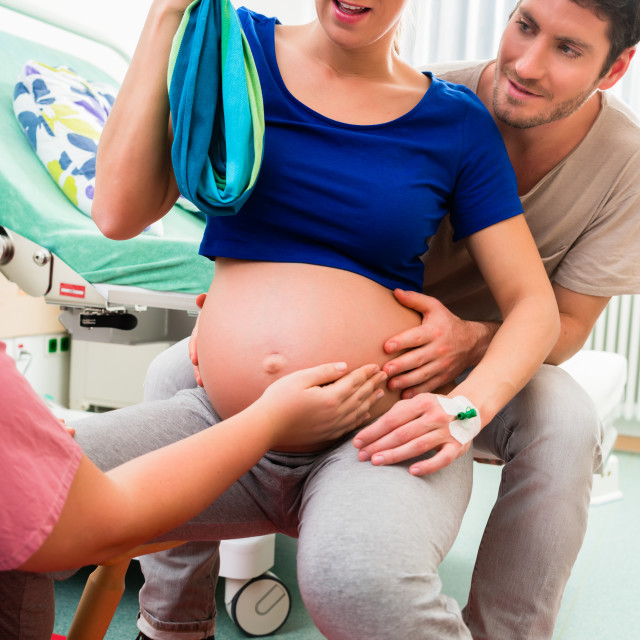
After giving birth, Polina began to pay more attention to her appearance. Photo: provided by the heroine of the publication
Confused Polina closed herself in the room and sobbed into the pillow. My first thought was about abortion. But on the same Internet they wrote that it was impossible to do it at such a late date. Telling your parents is scary.
- I was left alone, - this thought was constantly spinning in my head, - Polina admits. - I was not just afraid to tell my parents ... I thought they would have enough shock from such news.
The schoolgirl's parents really had no idea about anything. Dad only occasionally hinted to his daughter that it would be nice to do sports. And even bought her a hoop. Polina twisted it diligently - there were even bruises on her stomach. They were noticed by the girl's mother. She began to look and gasped - at that moment someone inside her strongly pushed her leg.
- I was not afraid that they would be angry with me. I thought that they would be hit by such news, - Polina admits. - Mom realized that I was in a position when I couldn’t pull in my stomach.
I thought that they would be hit by such news, - Polina admits. - Mom realized that I was in a position when I couldn’t pull in my stomach.
- I will remember for the rest of my life the moment when I found out about Polina's pregnancy, - says Olga Myltasova, the blogger's mother. - At first, the whole life flew before my eyes, but then I pulled myself together. There was no point in screaming or raising a panic, my daughter was scared, crying, I had to support her. Together with my father, we held a family council. And then we went for an ultrasound. It was the 35th week. Three weeks later, Ulyana was born.
TAKE HERSELF IN HANDS AFTER THE BIRTH
Polina caressing her daughter's head. The little girl smiles and scratches her cheek. She is now two years old. Recently got windmill.
- Good thing now. It is better to get sick in childhood, - the young mother says with knowledge of the matter. - Ulya was born healthy, weighing 3,800, height 50 cm. For the first month she was breastfeeding, but her breasts were small - no milk was expressed. She said the first word "woman" at five months, she took her first steps at 1 year and 1 month. (Thinking) My daughter radically changed my life. After her birth, I lost 15 kg. I began to pay more attention to appearance, to use cosmetics. Before giving birth, I didn’t even cut my hair normally. And now I want to be neat, and in the frame you need to be beautiful (Laughs).
For the first month she was breastfeeding, but her breasts were small - no milk was expressed. She said the first word "woman" at five months, she took her first steps at 1 year and 1 month. (Thinking) My daughter radically changed my life. After her birth, I lost 15 kg. I began to pay more attention to appearance, to use cosmetics. Before giving birth, I didn’t even cut my hair normally. And now I want to be neat, and in the frame you need to be beautiful (Laughs).
Moms advise Polina to show her daughter less on camera - they can jinx her. Photo: provided by the heroine of the publication
- And how did Aleksey's parents react?
- At first they avoided us, and then they began to invent stories that I got pregnant from another boy, - explains Polina. - But Lyosha was my first. My dad immediately said - "We don't need anything from them." And we will not file for alimony, so that in old age this goat could not demand them from Ulyana.
- You know, I'm happy to be a grandmother, - Polina's mother joins the conversation. - We have no claims against the family of the father of the child. At the right time, they did not lend a helping hand, so God be their judge. We often see his mother, she works as a cashier in a store. But not more. They are not interested in Ulyana's life, and we don't need it now.
- We have no claims against the family of the father of the child. At the right time, they did not lend a helping hand, so God be their judge. We often see his mother, she works as a cashier in a store. But not more. They are not interested in Ulyana's life, and we don't need it now.
Little Ulyana still does not understand that her mother is a local celebrity. Photo: provided by the heroine of the publication
The school where the girl studied was also not happy. Polina had to be transferred to home schooling, away from peers who began to poison her. Girlfriends also turned away from the schoolgirl, because “it’s dumb to communicate with the one that flew at 12.”
- Polina was an ordinary girl, she received a certificate. The school did everything possible so that she graduated from the 9th grade, reluctantly says Alena Kalashnikova, director of school No. 31 in Sredneuralsk. For her, there is nothing to be proud of in this story.
I EARN ON ADVERTISING
- With the advent of Ulyana, many guys began to write to me in the hope that they could sleep with me without any problems, - Polina admits.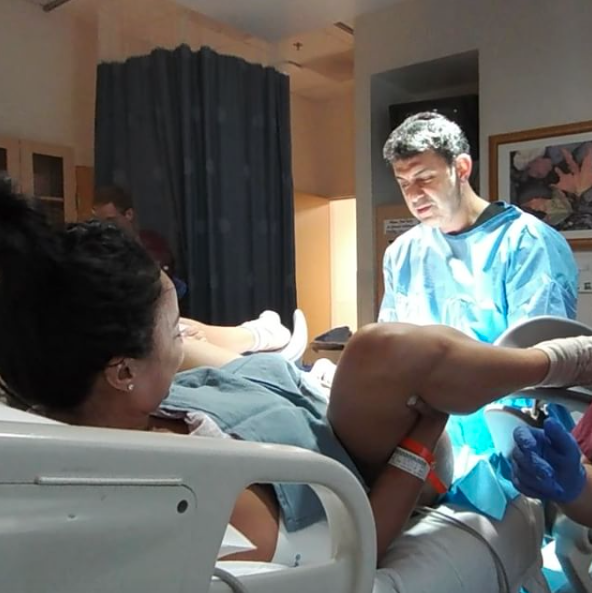 “Then, just like now, I don’t want to be in a relationship with anyone. I am out on the street for two hours a day. I want to take time for myself or meet with friends. But if you think about it, if you meet, then with a peer. I don't need adult uncles or youngsters!
“Then, just like now, I don’t want to be in a relationship with anyone. I am out on the street for two hours a day. I want to take time for myself or meet with friends. But if you think about it, if you meet, then with a peer. I don't need adult uncles or youngsters!
Polina Fateeva. The most popular teenage mother in Russia tells her story
Video: youtube/POLINA ANDREEVNA
- And how do people around you react when they find out that at 16 (Polina had a birthday on October 17), you already have a two-year-old daughter ?
- Yes, it's normal, there is no negative in my direction from them. I remember that in the first months after giving birth, a pediatrician came to us. I saw Ulya and began to look for my mother. She looked 35 at 43 and everyone thought she was in labor. But when I told him that this is my child - he was speechless, began to stutter (Laughs).
Parents are helping to bring up Ulyana Polina. They feed, walk, read bedtime stories. Buy everything you need from diapers to a crib with a stroller. And recently, Polina herself began to earn money. Income began to bring a channel on YouTube, which she decided to start a year after the birth of her daughter. To her surprise, the audience gathered quite quickly. Now she has 100 thousand subscribers, and the video in which Polina tells her story is gaining under two million views!
Buy everything you need from diapers to a crib with a stroller. And recently, Polina herself began to earn money. Income began to bring a channel on YouTube, which she decided to start a year after the birth of her daughter. To her surprise, the audience gathered quite quickly. Now she has 100 thousand subscribers, and the video in which Polina tells her story is gaining under two million views!
- Since my audience is teenagers and mothers, I mainly talk about new bloggers or advertise children's clothes and food, says Polina. - For advertising on Instagram ( andreevna3973 - ed.) I get 12 thousand a month, for the Youtube channel I recently received six thousand. To a greater extent, I talk about my life and Ulyana's upbringing, about everyday difficulties that I have to face daily. For example, there was no place for us in the state kindergarten, we have to pay 10 thousand a month for a private one. By the way, I was recently told that Lesha also watches videos.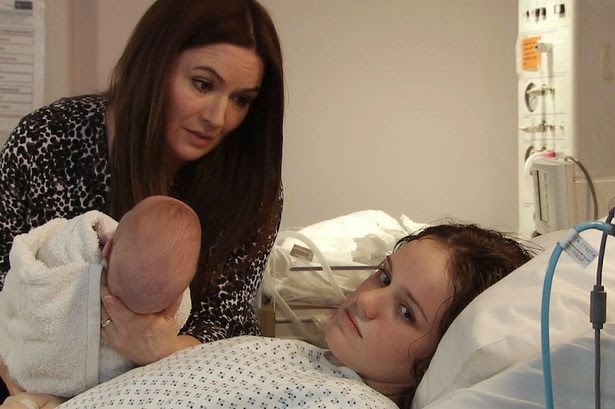 ..
..
The video in which Polina tells her story has almost two million views.
Besides, Polina dreams of going to a Yekaterinburg college to become a hairdresser:
- I still regard blogging as a temporary phenomenon. Today we are popular, and tomorrow nobody needs us. Therefore, I want to have an education and a permanent job.
BY THE WAY
According to the data of the federal survey “Russian Schoolchildren: Political, Sexual and Career Preferences” conducted by Mikhailov & Partners. Analytics,” three-quarters of high school students consider it more than acceptable to have sex before marriage. Of these, 66% admit that they are already sexually active. But at the same time, 48% believe that you can lose your virginity only from the age of 16-17.
LAWYER'S COMMENT
Anton Shtol, lawyer:
- There are definitely no signs of crime in this situation, since the children were the same age when Polina became pregnant.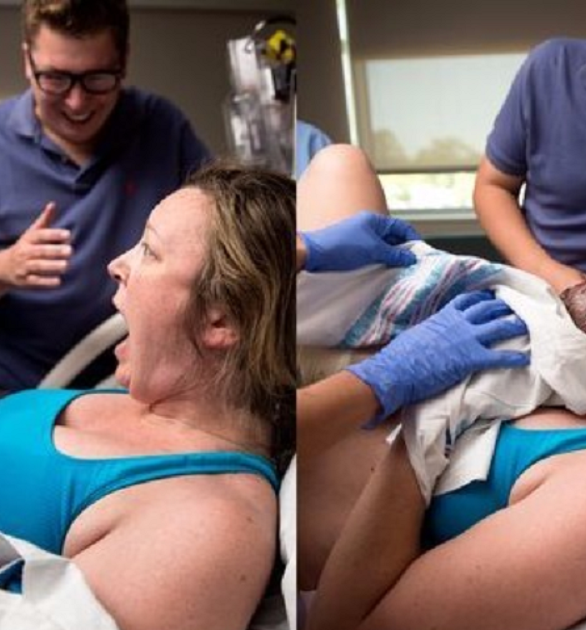 In this case, you can collect alimony from the father's parents, and when he turns 18 - from himself. The amount of payments is determined by the court. This is either up to 25% of the income of the grandparents, or in the amount of the minimum living wage. If the father does not acknowledge paternity in court, he will be sent for a DNA test.
In this case, you can collect alimony from the father's parents, and when he turns 18 - from himself. The amount of payments is determined by the court. This is either up to 25% of the income of the grandparents, or in the amount of the minimum living wage. If the father does not acknowledge paternity in court, he will be sent for a DNA test.
DOCTOR'S COMMENT
Sergey Belomestnov, Deputy Chief Physician for Obstetrics, Ekaterinburg City Clinical Hospital No. 14:
- Unfortunately, teenage pregnancy is usually not planned. And in 80% it ends with artificial termination of pregnancy. Given that the young body is still at the stage of physiological development, most pregnancies become complicated. And as a result, the risk of premature birth, bleeding, postpartum septic diseases increases. In addition, early pregnancy is a test for the reproductive system of a teenager. And it can further determine the development of serious endocrine disorders, up to infertility.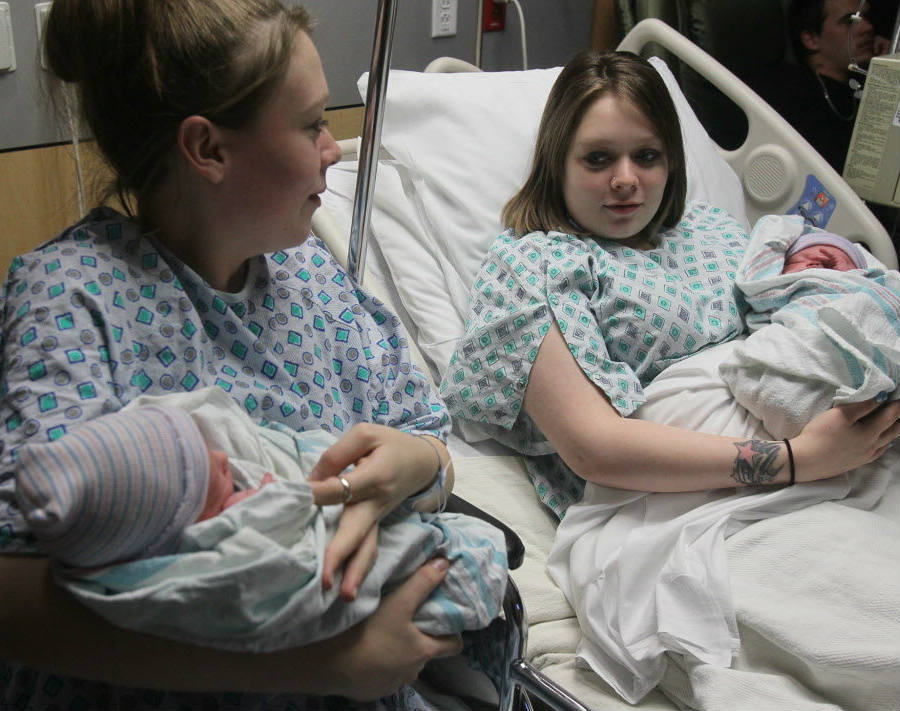
Polina found out that she was expecting a baby when she was five months pregnant. Photo: provided by the heroine of the publication
OFFICIAL
According to the Ministry of Health of the Sverdlovsk Region, the number of adolescents who become pregnant before the age of 14 has decreased by 1.6 times in the region over the past five years. In 2014 there were 13 cases, in 2018 - 8 cases. Including over the past 5 years in the region, there has also been a positive trend in reducing the level of interrupted pregnancies among adolescents by half.
She gave birth at the age of 13
Meet Polina Fetisova! The most popular teen mom in Russia. She gave birth at the age of 13 and does not regret it
BTW
It is not profitable for teenagers to really grow up
: Teen cannot be controlled. Parents are needed for children only up to 5 years old
Read also
Age category of the site 18+
The online publication (website) is registered by Roskomnadzor, certificate El No.